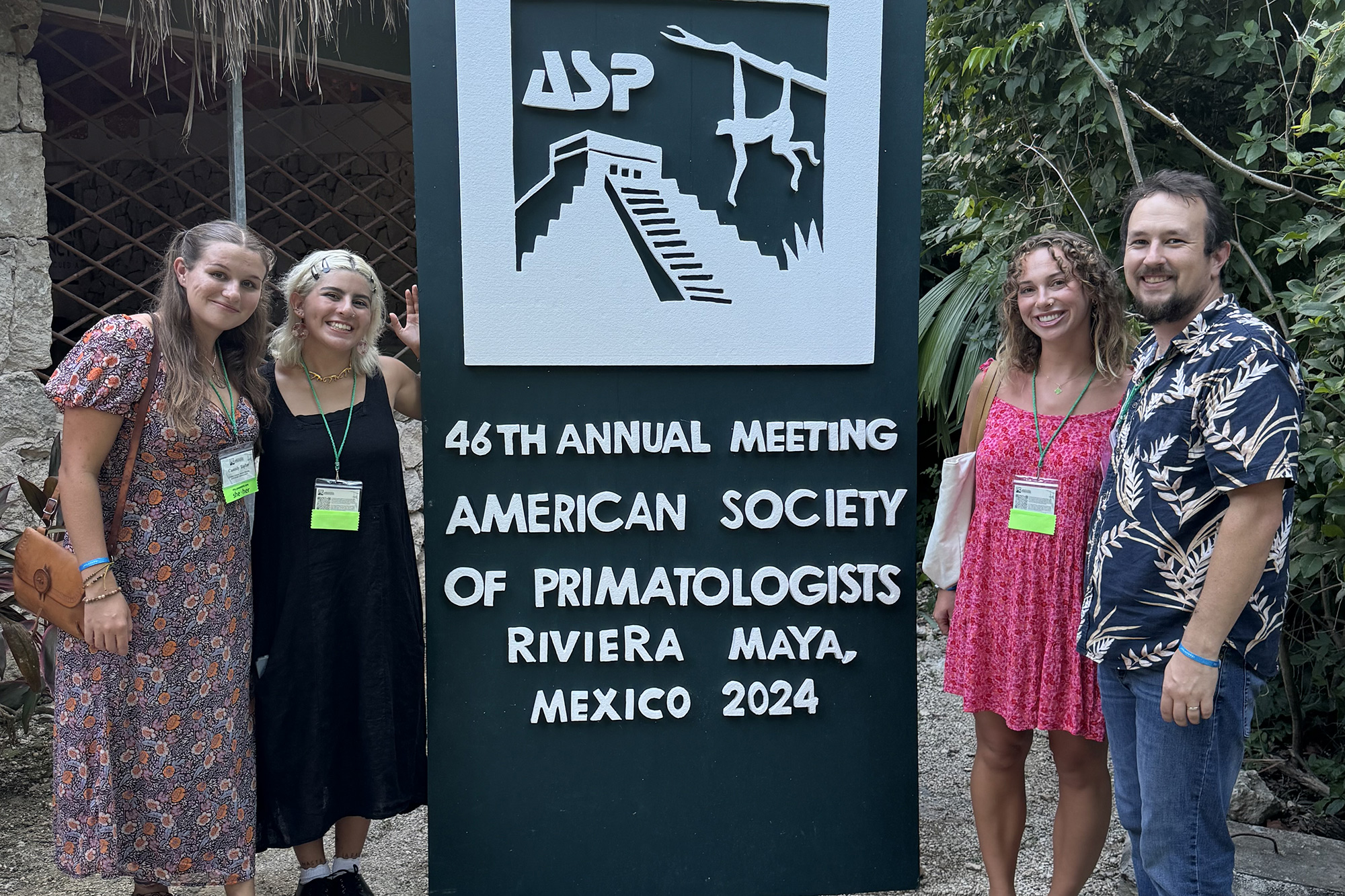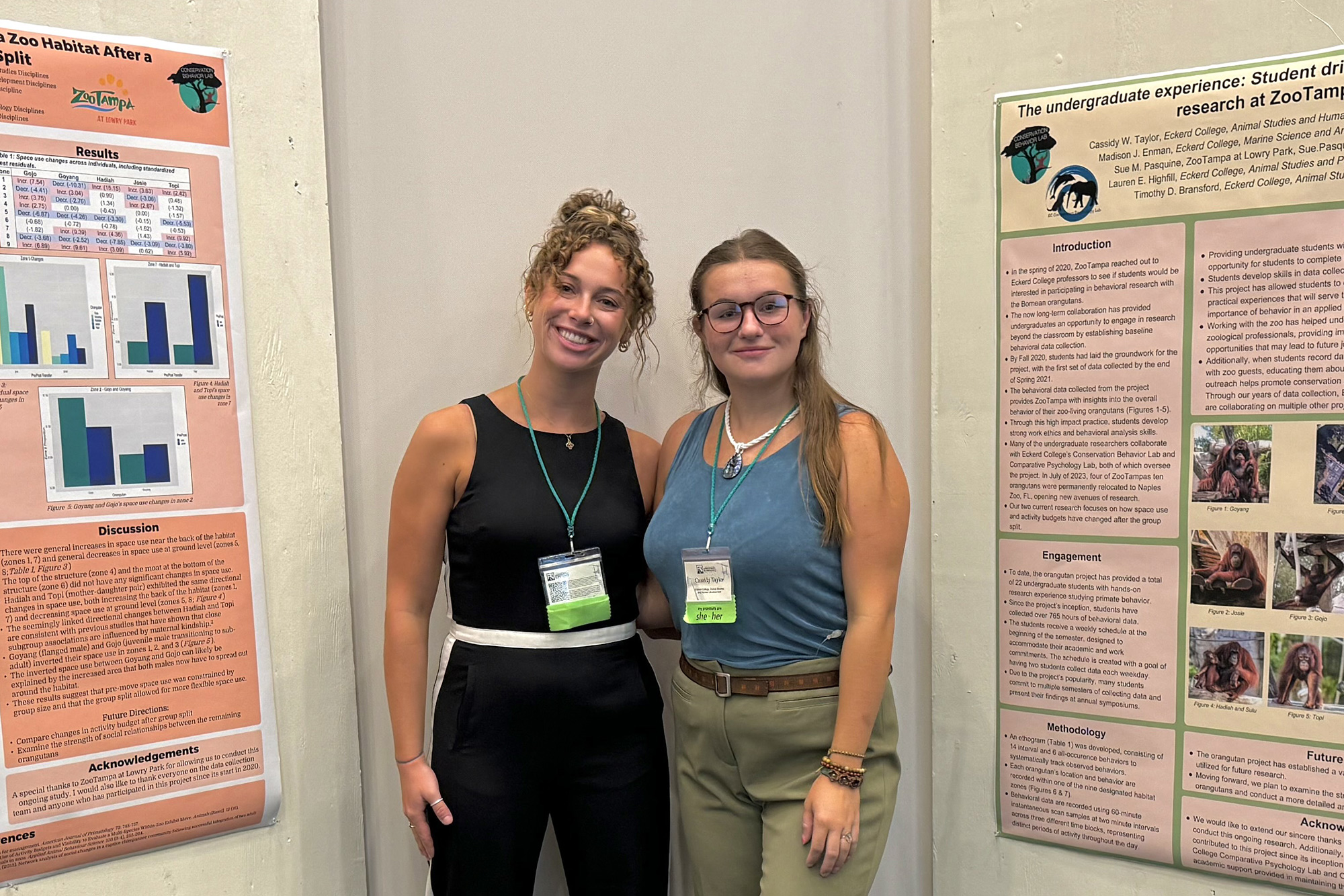The annual meeting of the American Society of Primatologists took place September 8–11 in Riviera Maya, Mexico, bringing together professionals and postgraduate students from across the board—including nonprofits, zoos, sanctuaries and research centers.
Add to that list three Eckerd College students, two of whom had the rare opportunity to make a presentation at an invited symposium during the conference.
“Earlier this year, Lauren Highfill [Ph.D., professor of psychology and animal studies at Eckerd] and I were chatting about our collaborative research project looking at orangutan behavior at ZooTampa,” explains Tim Bransford, Ph.D., assistant professor of animal studies and the Eckerd cohort leader. “One of the main reasons we run this project is to provide undergraduate research training to students, and we thought ASP would be a great venue to host an invited symposium focusing on zoos and undergraduate research.
“I am a member of the ASP Education Committee,” Bransford explains, “so I reached out to my colleagues, and we collectively organized an invited symposium titled Utilizing Zoos for Undergraduate Research Training that brought together students and professionals. Three of our senior research students attended: Maddie Enman, an animal studies and marine science student from Grayslake, Illinois; Alejandra López Rueda, an animal studies and biology student from Coyoacán, Mexico; and Cassidy Taylor, an animal studies and human development student from Port St. Lucie, Florida. Both Cassidy and Maddie presented at the symposium, which was a great success.
“The biggest benefit is the opportunity to network,” Bransford adds. “You get to talk to professionals from different areas—people you wouldn’t normally expect to talk to. And you learn about new and interesting research and get contact information. It helps expose students to the possibilities out there.”
Cassidy has been part of the College’s long-term, student-driven orangutan research project that partners with ZooTampa at Lowry Park. “Undergrads don’t typically get experience like this,” Cassidy says. “It’s especially difficult to do research with orangutans.”
But doing that research may have gotten a little easier.
“I was anxious about speaking at first,” Cassidy says. “I had done Eckerd symposiums, but this was different. After presenting, I noticed an improvement in my public speaking, and I felt proud of myself for hitting every point that I wanted to talk about.
“I’m pretty sure we were the three youngest people there,” she points out. “Undergraduates don’t usually present at these symposiums. I listened to primatologists with Ph.D.s and grad students present their research, and I found out that I was very interested in research with lowland gorillas. It really made me want to learn more. For all of us, networking with the professionals helped us discover future research opportunities with primates.”















